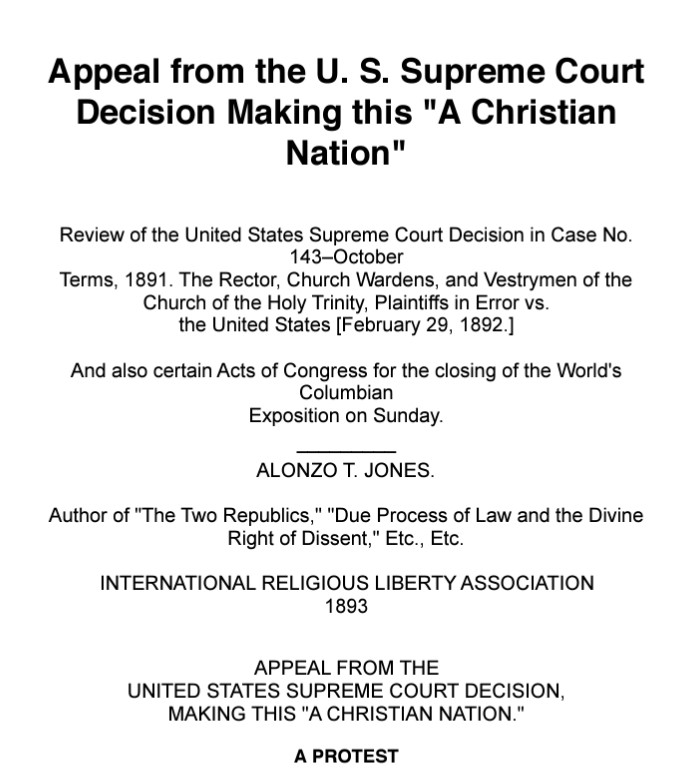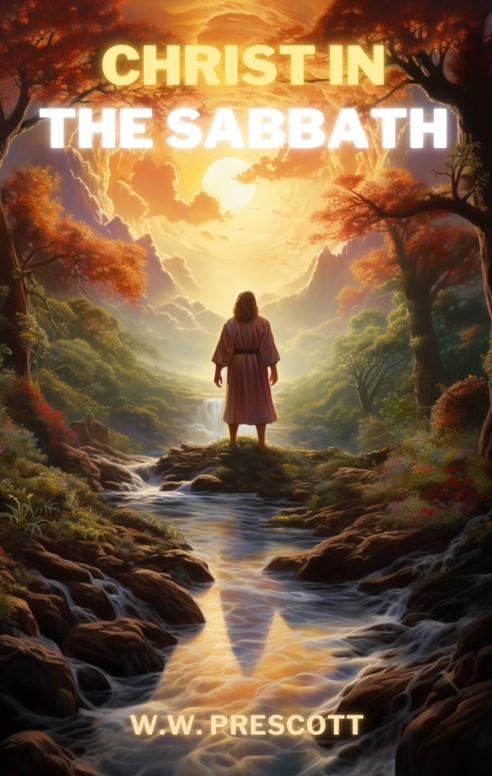Appeal from the U. S. Supreme Court Decision Making this "A Christian Nation"
July 4 following, the Declaration of Independence was made, wherein this principle is embodied in the statement that governments "derive their just powers from the consent of the governed."
Governments deriving their just powers from the consent of the governed can never of right exercise any power not delegated by the governed. Now religion, pertaining solely to man's relationship to God, to the duty which man owes to his Creator, and the manner of discharging it, in the nature of things can never be delegated to another.
It is utterly impossible for any person ever, in any degree, to transfer to another any of his relationship to God, or any duty which he owes to his Creator, or the manner of discharging that duty. Man's relationship to God originates not with himself, but with the Lord; it springs not from himself but from the Lord. The duty which man owes to his Creator, and the manner of discharging it, spring not from himself, but from the Lord. These are not dictated nor defined by himself, but wholly by the Lord. Here man is subject, not sovereign. None of these things then springing from himself, but all from the Lord, none of them could he delegate if he would. Even to attempt it would be only to deny God and renounce religion, and even then the thing would not be done–his relationship to God, the duty which he owes to his Creator, and the manner of discharging it, would remain, as firmly fixed and as binding upon himself as ever. Under the Declaration of Independence, therefore, the government of the United States can never have anything to do with religion.





